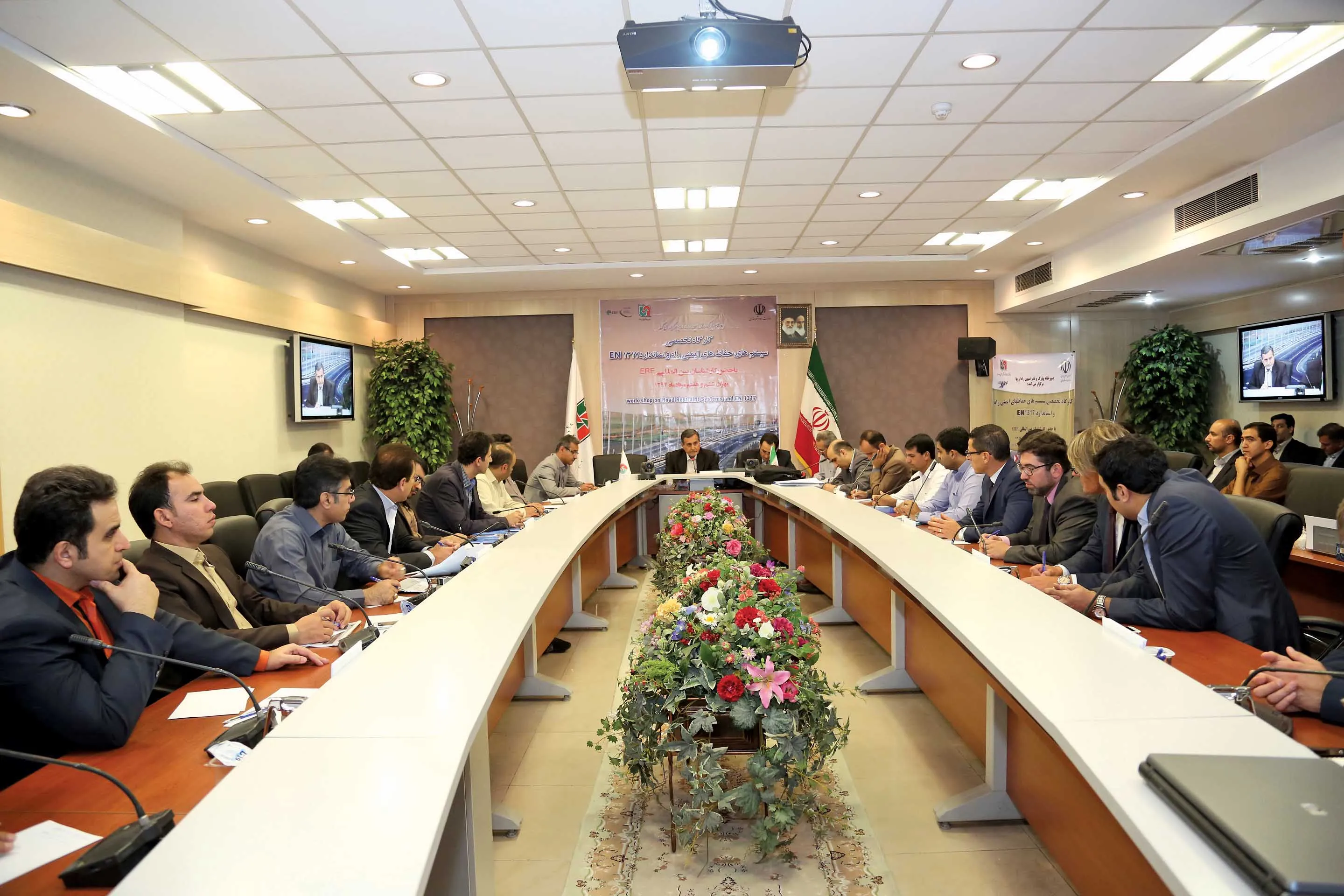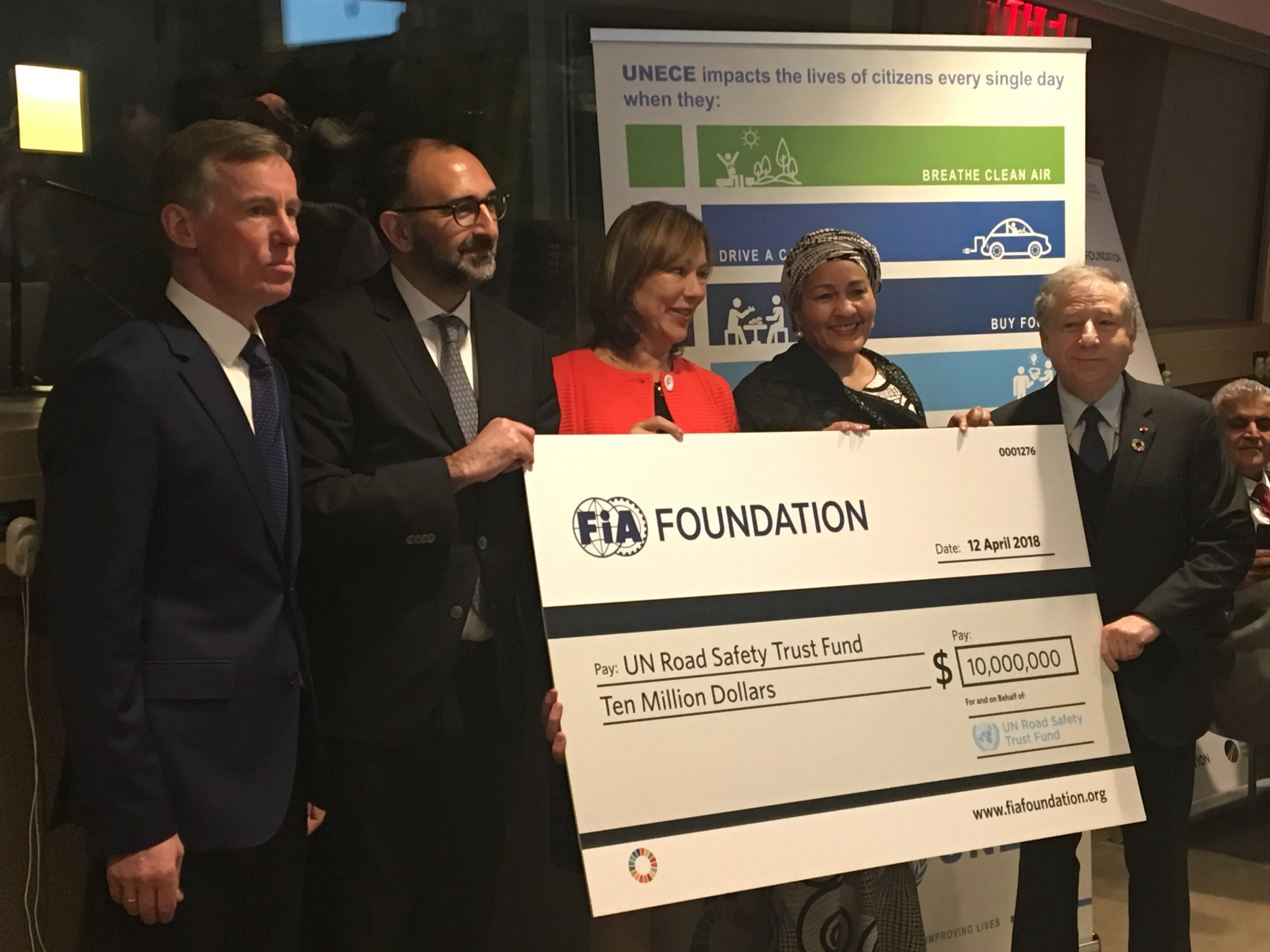Europe is a global leader in road safety. It has an average of 50 traffic fatalities/million population, half that of the equivalent figure for the USA
While there is no magical formula for improving road safety, it is possible to observe a positive correlation between the advent of performance-based standards for essential road equipment and the impressive reduction in road fatalities that Europe has seen since 2001, a drop of 50%.
October 8, 2015
Read time: 4 mins

Europe is a global leader in road safety. It has an average of 50 traffic fatalities/million population, half that of the equivalent figure for the USA
While there is no magical formula for improving road safety, it is possible to observe a positive correlation between the advent of performance-based standards for essential road equipment and the impressive reduction in road fatalities that Europe has seen since 2001, a drop of 50%.
According to the United Nations, road-related injuries are amongst the three leading causes of fatalities globally for people aged between 5-44 and if current trends of motorisation continue, such incidents could account for 2.4 million fatalities/year, elevating road-related incidents to the unenviable position of being the 5th leading cause of fatalities worldwide.
As developing countries seek to mobilise their road safety strategies in their attempt to reduce accidents and meet the targets of the UN's Road Safety Decade for Action, Europe inevitably becomes a focal point of study as policymakers seek to understand the underlying reasons for Europe's performance in this field.
In this context, and building upon its previous experience of training in Central and Eastern Europe, ERF was invited by the Iranian authorities to deliver a two-day specialised training course on the hEN 1317-5 which is the European standard dedicated to road restraint systems.
In view of the recent political developments, the Islamic Republic of Iran will in the near future be in a much better situation to benefit from European technological knowhow and good practices adopted across the continent.
The objective of the training was to inform key policymakers from Iran's approximately 30 provinces about the philosophy behind the hEN 1317-5 and how its possible adoption by the Iranian authorities could benefit the country's road safety performance. After all, vehicle restraint systems are one of the most cost-effective safety measures available to road authorities and their widespread implementation across Europe is one of the contributing factors to Europe's good track record in the field of safety.
The training was conducted by five ERF experts from four European countries, Austria, Italy, Greece and Poland. They gave an overview of several elements and covered road safety policies at EU and UN levels and an introduction to the core terminology of the EN 1317 and the testing methodology for safety barriers. They also looked at an in-depth analysis of steel and concrete barriers together with examples of practical use, in addition to a presentation of steel-wood and wire rope barriers, as well as an introduction to the concept of crash cushions, the relevant testing methodology and examples of practical use. Other areas covered included the use of computer simulations for the certification of vehicle restraint systems, an introduction to transitions and terminals, the relevant testing methodology and examples of practical use as well as the use of motorcycle protection systems coupled with an explanation of the different testing methodologies. The experts also provided an in-depth explanation of the certification process for road restraint systems according to the hEN 1317-5 with a particular focus on the role of crash test laboratories and notified bodies, as well as an overview of different criteria for selecting vehicle restraint systems on the road network.
The two-day training programme was attended by some 50 experts. In addition, the ERF delegation had the opportunity to make some on-road inspections as well as visit different production plants of domestic precast and steel barrier manufacturers in order to explore the possibilities of cooperation between ERF members and the domestic industry.
This first cooperation may pave the way for future training in the field of other essential road safety equipment elements such as road markings and signs. In addition, the possibilities of exchanging knowledge in the field of road asset management will be explored.
These events will form part of a broader strategy to export the benefits of European technologies and standards outside Europe in order to help developing countries improve their level of road safety, whilst at the same time, maximise the innovation potential of European companies.
While there is no magical formula for improving road safety, it is possible to observe a positive correlation between the advent of performance-based standards for essential road equipment and the impressive reduction in road fatalities that Europe has seen since 2001, a drop of 50%.
According to the United Nations, road-related injuries are amongst the three leading causes of fatalities globally for people aged between 5-44 and if current trends of motorisation continue, such incidents could account for 2.4 million fatalities/year, elevating road-related incidents to the unenviable position of being the 5th leading cause of fatalities worldwide.
As developing countries seek to mobilise their road safety strategies in their attempt to reduce accidents and meet the targets of the UN's Road Safety Decade for Action, Europe inevitably becomes a focal point of study as policymakers seek to understand the underlying reasons for Europe's performance in this field.
In this context, and building upon its previous experience of training in Central and Eastern Europe, ERF was invited by the Iranian authorities to deliver a two-day specialised training course on the hEN 1317-5 which is the European standard dedicated to road restraint systems.
In view of the recent political developments, the Islamic Republic of Iran will in the near future be in a much better situation to benefit from European technological knowhow and good practices adopted across the continent.
The objective of the training was to inform key policymakers from Iran's approximately 30 provinces about the philosophy behind the hEN 1317-5 and how its possible adoption by the Iranian authorities could benefit the country's road safety performance. After all, vehicle restraint systems are one of the most cost-effective safety measures available to road authorities and their widespread implementation across Europe is one of the contributing factors to Europe's good track record in the field of safety.
The training was conducted by five ERF experts from four European countries, Austria, Italy, Greece and Poland. They gave an overview of several elements and covered road safety policies at EU and UN levels and an introduction to the core terminology of the EN 1317 and the testing methodology for safety barriers. They also looked at an in-depth analysis of steel and concrete barriers together with examples of practical use, in addition to a presentation of steel-wood and wire rope barriers, as well as an introduction to the concept of crash cushions, the relevant testing methodology and examples of practical use. Other areas covered included the use of computer simulations for the certification of vehicle restraint systems, an introduction to transitions and terminals, the relevant testing methodology and examples of practical use as well as the use of motorcycle protection systems coupled with an explanation of the different testing methodologies. The experts also provided an in-depth explanation of the certification process for road restraint systems according to the hEN 1317-5 with a particular focus on the role of crash test laboratories and notified bodies, as well as an overview of different criteria for selecting vehicle restraint systems on the road network.
The two-day training programme was attended by some 50 experts. In addition, the ERF delegation had the opportunity to make some on-road inspections as well as visit different production plants of domestic precast and steel barrier manufacturers in order to explore the possibilities of cooperation between ERF members and the domestic industry.
This first cooperation may pave the way for future training in the field of other essential road safety equipment elements such as road markings and signs. In addition, the possibilities of exchanging knowledge in the field of road asset management will be explored.
These events will form part of a broader strategy to export the benefits of European technologies and standards outside Europe in order to help developing countries improve their level of road safety, whilst at the same time, maximise the innovation potential of European companies.






